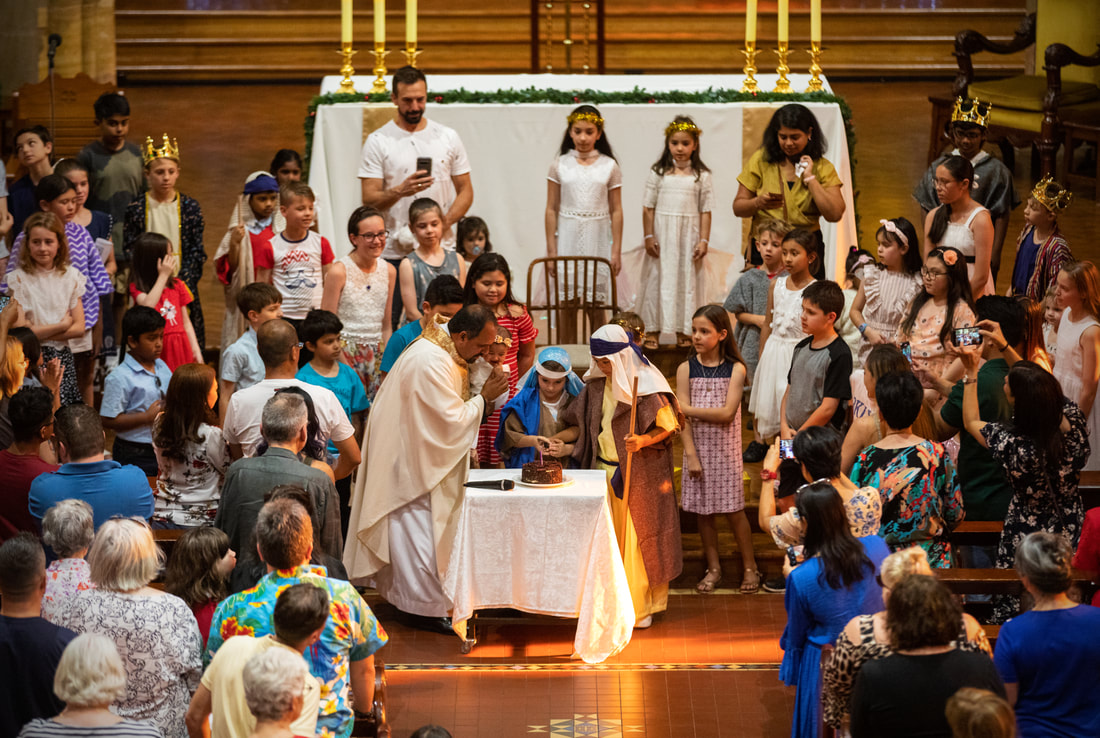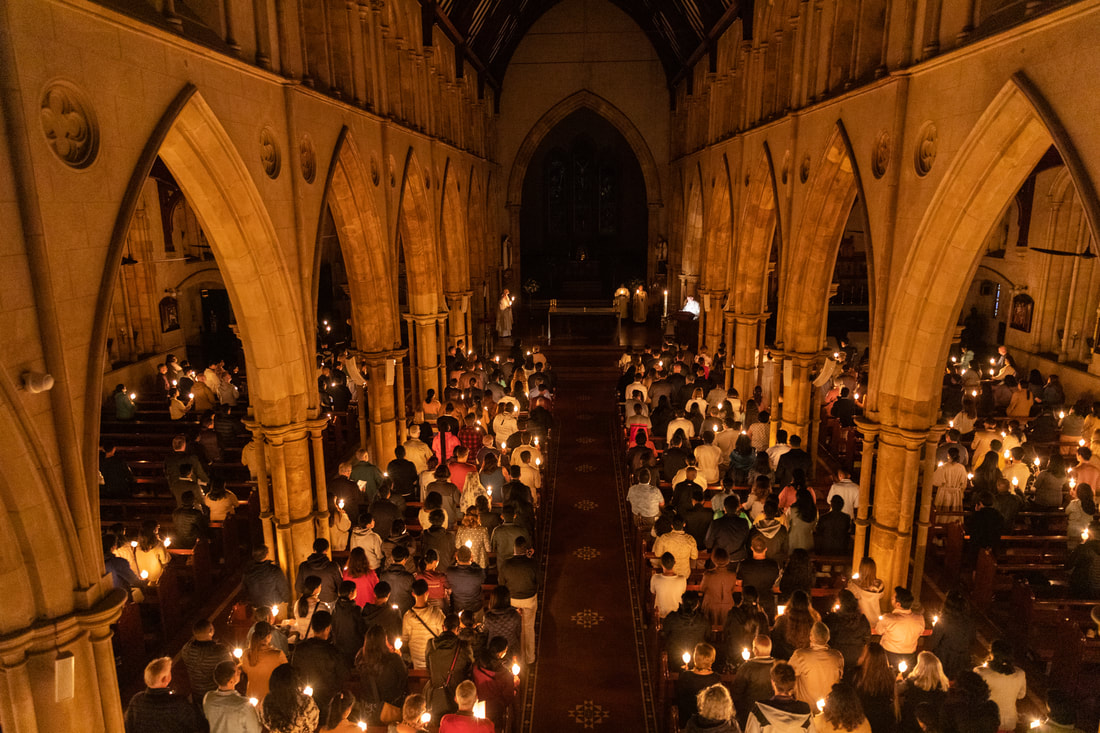|
By Lauren Bierer Christmas lunch is either something you look forward to or something you dread. The food, the company, the conversations, the gift exchange; a lot of it hinges on both the choices you make and the people you are with. Are we gathering out of obligation or with love? How well do we know the people around the table? How could we make time with family and friends more meaningful?
Priya Parker, author of The Art of Gathering says that ‘a part of the art of gathering is to get people off their scripts and do things that are unexpected’. As we gather for the third Christmas since learning the word ‘COVID’, we must acknowledge that each person’s experience is unique. Trauma, fear, worry, anxiety, depression, loss, illness are all very real and significant in some people’s lives.
0 Comments
By Lauren Bierer The postures of participants in the assembly at Mass can feel routine for those who attend regularly: stand for the Alleluia and proclamation of the Gospel, sit for the homily and stand for the Creed, etc. On the other hand, if you’ve ever been to a Catholic wedding or funeral, you have most likely witnessed family and friends who are less familiar with the actions and responses, gathering uncomfortably in the pews, looking around the room for prompts from the regulars.
It is nerve-wracking to be a part of an unfamiliar ritual and not being sure of your role. Some may feel particularly uncomfortable when it comes time to kneel. It is a posture of vulnerability. A posture of penance, where we say ‘I’m sorry for my mistakes’, ‘I know I am an imperfect human’. If you’re a first-time church visitor and the presider says ‘please kneel’, it’s natural to decide ‘this bit isn’t for me, I’ll just watch’. Author: Dr Jenny O'Brien Hot cross buns and chocolate eggs are enjoyed by many over the Easter period, but not everyone understands their true significance. Behind those simple ‘treats’ stand the most profound events of human history. The cross on the yeast buns represents the crucifixion when Jesus, the Son of God died out of love for us. The egg represents the resurrection, when Jesus was raised to new life and lives for ever as the resurrected Christ. On Easter morning we hear the proclamation, “Christ is risen!” and our response is, “He is risen indeed, Alleluia!”
Author: Jenny O'Brien Did you know that the first official Roman ritual for Christian Marriage only appeared in 1614 and was only officially recognised as one of the seven sacraments in the Middle Ages?
In the first millennium the Church accepted marriage as a secular reality and there was no Christian ritual accompanying its celebration. It “belonged” to the family and to civil authorities. The only role that the Church played was to discourage Christians from partaking in any pagan practices contrary to the Christian spirit (like sacrificing to idols.) Author: Jenny O'Brien The purpose of any calendar is to help people within a given society to order their lives. Most modern countries use the Gregorian calendar, but in actual fact there are about forty different calendars in use around the world today, particularly for determining religious dates. The Church’s Liturgical Calendar is one of these and is not so much concerned with “counting days” but in setting out guidelines for the celebration of the mystery of Christ over the period of a year.
The Liturgical Year is based on the fact that Sunday is the primary day when Christians gather to celebrate the death and resurrection of Christ, with Easter as the most important Sunday of the year. And while Christmas does not necessarily fall on a Sunday, the birth of Christ is the other major feast around which the Church’s year is structured. Author: Jenny O'Brien In 4th century Rome, the Church year began on Christmas day, the day of Christ’s birth. By the 7th century, however, the Church year began with the First Sunday of Advent, four weeks prior to Christmas.
What is ‘Advent’ all about? Despite popular opinion, it is much more than getting ready to commemorate Christ’s birth and being busy with preparations for present-giving and Christmas dinner! |
|
Catholic Archdiocese of Adelaide
|


